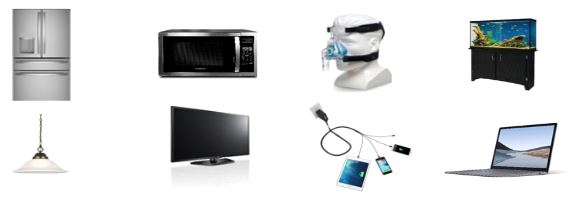Essential Loads in a Nutshell
Essential Loads in a Nutshell
Emergency backup power systems are independent sources of electrical power that support your essential electrical loads when grid power is down. These systems often include a solar array, batteries and/or a generator. Backup power protects your property and provides you with a moderate level of comfort and convenience during a utility outage.
What is an Essential Load?
An essential load is anything that you consider vital to keep running when your utility goes down. It is important to carefully choose which loads you want to power because the more power you use will increase how much you need to produce and store, increasing the cost of your backup system. Things like:
Impractical Loads
While it would be nice to power your entire home during an outage, there are some loads that are impractical to power on solar or batteries without running a generator. These include:

How much energy storage do I need?
To determine how much energy storage capacity you will need, it is important to have complete power usage information about your essential loads. For the most accurate calculations you can refer to the label on each appliance or piece of equipment, estimate the amount of time you will use them each day, and then do some math. For some items, like household lighting, it is reasonable to use a guesstimate. But for those that have higher power consumption or that are in use frequently, we suggest using the actual electrical load ratings when doing your calculations.
Below is a representative list of items you might consider essential during an outage. Just remember, powering more items means more expense for your backup power system.
- Cell Phone Charging
- Clock Radio
- Clothes Washer
- Coffee Maker
- Computer (Desktop)
- Computer (Laptop)
- Computer Printer
- CPAP Machine
- DVD Player
- Garage Door Opener
- Home Security System
- Internet Router
- Lighting
- Microwave
- Refrigerator
- Septic Pump
- Toaster
- TV
- Water Pump(s)
In addition to your list of essential loads, you’ll need to know:
1. How much power do they use?
2. How much/often will you use them in an emergency?
3. How long do you want to go before having to recharge your batteries (days of autonomy)?
The simplest way to calculate your total electrical is to let us help you. You can also use our solar load calculator to help calculate your loads. We can save you time and ensure that your emergency backup power solution will provide you the comfort, convenience and security you want and deserve when your utility power is out.

